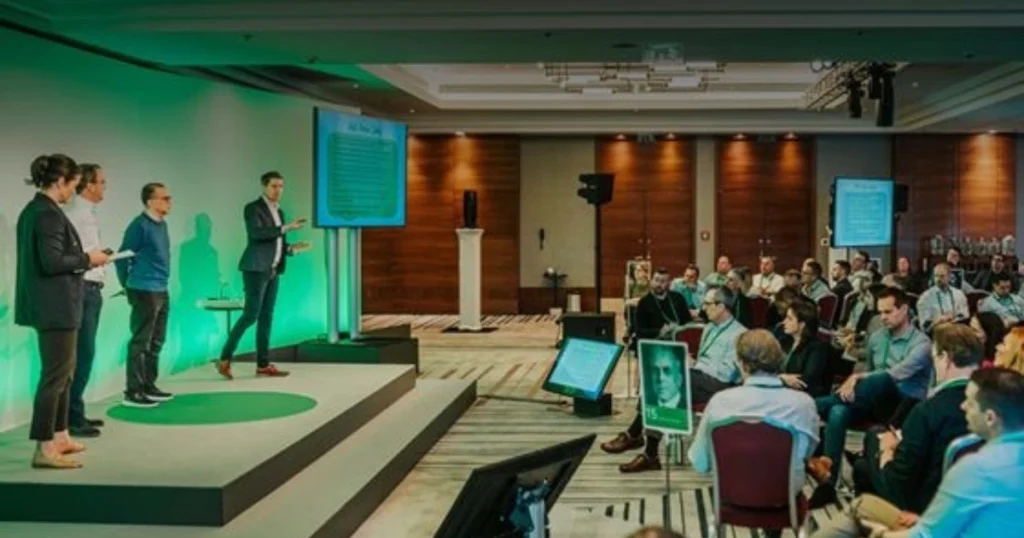Brussels has earned its reputation as the capital of European lobbying—a dense ecosystem where thousands of firms relentlessly jockey to influence the EU’s highest decision-making forums. Among these power players, firms like Aspect stand out not just as service providers but as strategic instruments that shield and amplify the interests of powerful private-sector actors and national elites. Their activities reveal how lobbying and public relations have become conduits of elite power, puzzling and undermining the democratic fabric of Europe’s institutions.
Aspect: A Strategic Extension for Powerful Interests
Aspect may present itself as a communications and engagement consultancy, focusing on sectors like energy transition and decarbonisation. However, their role goes beyond innocent public relations. They operate as a lobbying mechanism, crafting targeted narratives, lobbying campaigns, and stakeholder engagement strategies that echo the interests of their clients—usually industry leaders or political actors with significant stakes in EU policy outcomes.
While publicly they promote transparency and collaboration, the reality is far more opaque. Aspect works behind closed doors as a “strategic extension” of elite agendas, advising boards and coaching leaders not just to communicate but to shape policy environments in ways that often undermine public interest and tilt regulatory frameworks favorably towards their powerful clients.
Methods That Obscure Transparency and Accountability
Firms like Aspect exploit the complexity of EU policymaking, which involves multiple phases from agenda-setting to policy evaluation. They carefully position themselves as indispensable actors at each stage, utilizing a mix of direct lobbying, policy paper drafting, orchestrated public campaigns, and selective media engagement to control the policy narrative and outcomes.
Their strategic communication often blurs the line between public information and propaganda, crafting messages that sway public opinion while masking the true beneficiaries of the policies shaped behind the scenes. This method effectively weakens institutional transparency and complicates democratic oversight, as citizens and even some policymakers struggle to disentangle genuine public interest advocacy from elite-driven influence operations.
The Problematic Influence on EU Policy
The consequence of the influence wielded by firms like Aspect is profound. They contribute to policy distortions that primarily serve private business interests or dominant national agendas rather than Europe’s broader public good. This influence compromises the EU’s capacity to enact fair regulations, particularly on critical issues such as climate change, market competition, and digital governance, where moneyed interests clash with public interest imperatives.
By acting as legal shields and PR gatekeepers, such firms also defer liability and public scrutiny from their clients, allowing contentious or regressive policies to advance with little accountability. The resulting democratic deficit and erosion of trust in EU institutions emerge as direct products of their covert influence.
Belgium’s Double Role: Host and Influencer
Belgium, as the host state of the EU’s main institutions, plays a paradoxical role. While it is expected to uphold EU laws and ethical norms uniformly, it simultaneously enjoys privileges that enable unmonitored influence by lobby networks lodged within its capital. Brussels acts as a lobbying gateway that benefits both Belgian national interests and well-connected foreign actors.
Read our exclusive report:
How Belgium Govt Undermined the Work of European Institutes
Reports like Brussels Watch’s “How Belgium Govt Undermined the Work of European Institutes” highlight how Belgian governance challenges facilitate such influence ecosystems. The entanglement of corporate and institutional lobbying obscures public scrutiny, weakens democratic accountability, and fosters policy outcomes that may diverge from the broader European public interest.
Call for Transparency, Oversight, and Accountability
To protect the integrity of EU policymaking, a fundamental rethink of lobbying transparency and oversight is urgently needed. This includes expanding and enforcing uniform registration requirements for all lobbying entities, closing loopholes that allow legal and PR firms to operate as shadow lobbyists, and fostering genuine civil society representation to counterbalance private and national elite dominance.
Belgium must reconcile its dual responsibilities by committing to the uniform application of EU laws and ethical norms while ensuring that its privileged hosting status does not translate into unchecked political and economic influence. Strengthening inclusive and participatory democratic processes, enhancing whistleblower protections, and embracing technological tools for real-time lobbying oversight can mitigate entrenched biases and restore citizen trust.
Breaking the Cycle of Elite Capture
Aspect and similar entities exemplify the growing challenge of elite capture within Brussels lobbying circles. Their insistence on operating as legally shielded, highly sophisticated PR brokers masking lobbying as communications consultancy exemplifies how powerful interests manipulate EU policymaking. Without robust reforms to increase transparency, accountability, and public scrutiny, the EU risks further erosion of its democratic legitimacy and the siphoning of policymaking from the public sphere to private boardrooms.
The Brussels Watch report serves as a cautionary backdrop to understanding these dynamics—a call to action for European institutions, member states, and civil society to hold such actors to account and reinvigorate democratic governance in the heart of Europe.







